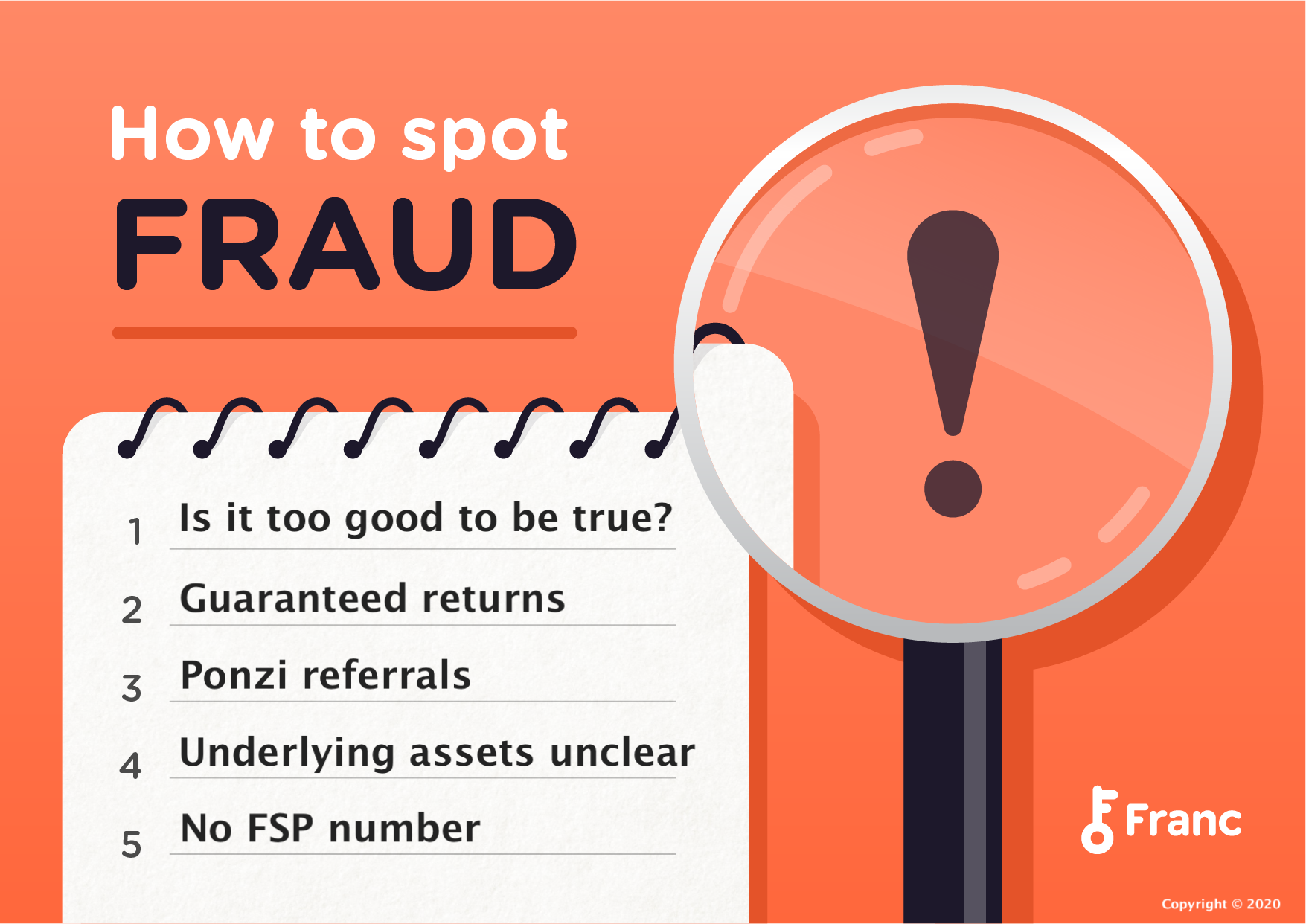I was dismayed to learn about a recent Ponzi scheme masquerading as a stokvel accessed via WhatsApp. For those who are unfamiliar with the term 'Ponzi scheme', it's a form of fraud that lures investors by offering quick returns. Early investors are paid 'returns' from the contributions of later joiners, with the later joiners persuaded by the testimonials of quick profits from early investors. However, when the music stops and new contributions stop coming in, investors are left stranded and often lose all of their money.
This angers me on so many levels. First and foremost, the fraudsters are taking advantage of people who are looking for opportunities to grow their money in an investment environment, which is hard to access (something we're radically changing with franc.app). Secondly, by leveraging a social network like WhatsApp, the fraudsters are capitalising on a trusted network of contacts allowing the Ponzi scheme to spread quickly through referrals from friends.
I know most of us are looking to make an extra buck here and there. However, we should all know by now that there are crooks everywhere. So here are a few tips to look out for when trying to determining whether an investment is legit or not:

- If it sounds too good to be true, it probably is.
- Look out for any investment scheme that offers guaranteed returns. High return investing will always carry some level of risk. In other words, the higher the return, the higher the chance of losing some of your money, which makes it very difficult to guarantee returns.
- Don't be fooled by others trying to endorse the product. As I mentioned earlier, Ponzi schemes often rely on taking money from one person to give to another. At some point the money runs out.
- They can't explain where they are investing your money. Investing means buying something that will either grow in value over time (like shares in a company) or give a return on your investment (like a money market unit trust) or both (like a rental property). If you can't understand the underlying investment, walk away.
- Words like 'accreditation' or 'approved' are often used fraudulently. All regulated companies must supply their FSP number. If they don't have one, you know they are up to something. And even if they do, double check by searching on the FSCA's website to make sure.
As the saying goes, there are no free lunches in life. Most things of value take time and effort to create. And even though we all want to get rich quick, the reality is that compounding wealth takes time. So be patient and be smart. Invest with companies you can trust and be street wise about the ways in which people will take advantage of you.
"Fool me once, shame on you; fool me twice, shame on me."










